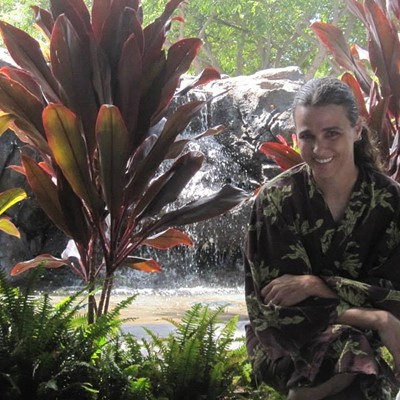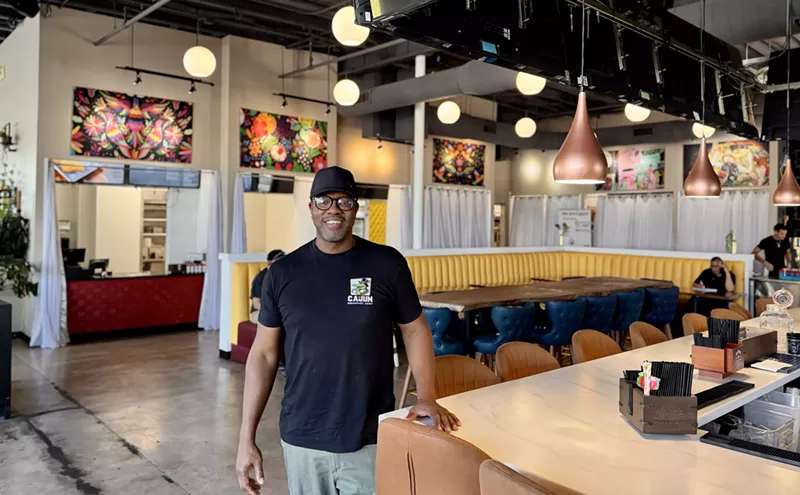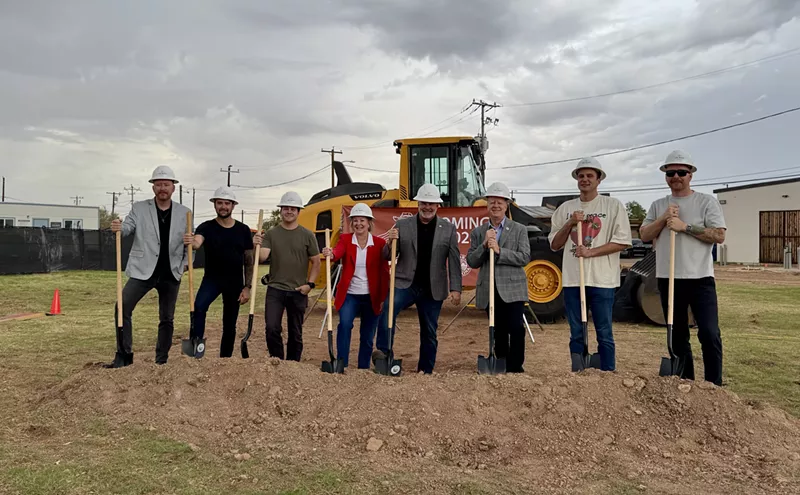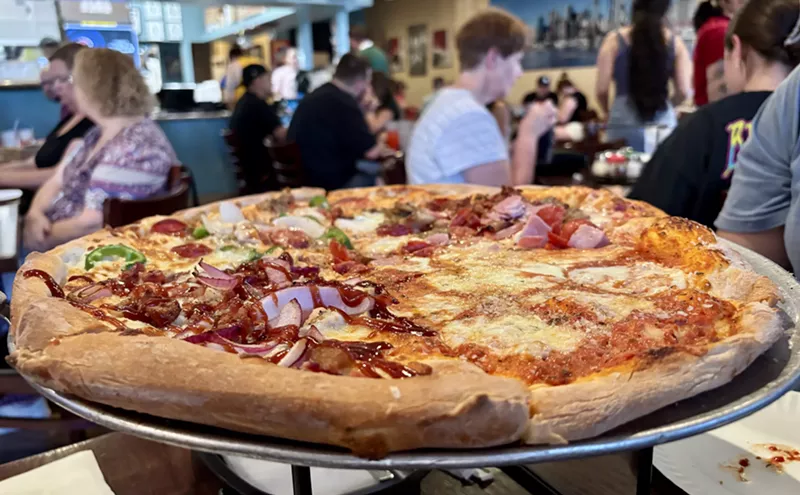Pettis founded Project Roots in early 2020 with a mission of educating people on how to grow their own food while also providing food through a farmers’ market, soup kitchens, food banks, and deliverable produce bags.

Project Roots participates in a farmers' market every Saturday evening at Spaces of Opportunity.
Project Roots
“The beautiful thing about Arizona is you can really grow year-round if you shade your food,” she says. She cites watering as the most important practice in growing food, next to spending time with your young produce.
“I grew up with my mother singing to her plants," she says. She too logs the hours with her plants, saying it's just as nurturing to her as it can be for them. "It’s the give-and-take experience in gardening.”
Project Roots maintains two community gardens — one at Spaces of Opportunity, the other at Agave Farms in central Phoenix. Their first winter crops included a proliferation of leafy greens like kale, collard greens, spinach, and different lettuces. Heading into summer, the gardens currently grow squash, zucchini, melons, tomatoes, and other seasonal plants.
Pettis constantly cooks from the gardens.
“I love green tomatoes," she says, though explains she doesn't fry them anymore; she sautés them. She sautés many of the garden's vegetables. She also creates salads from the available array of lettuce, and juices, picking the kale and cucumbers for drinks later. She also "teas."
“I drink a lot of tea, so we grow a lot of medicinal-type teas like holy basil, which helps with our nervous system," she says. "Also, different types of mint and fennel, dill — things that are better for our digestive system.”

Produce from Project Roots is available via farmers' market and delivered produce bags.
Project Roots
For those who can’t make it to the market, Project Roots offers produce bags for delivery. “You get a variety of four to five vegetables delivered to your home,” Pettis says. This service is free to homes in Phoenix, Tempe, Scottsdale, and Glendale. Other addresses cost an extra $10 for the drop-off. Among the recipients of Project Roots’ fruit produce is Cultural Cup Food Bank — a community-based nonprofit food bank for people with dietary restrictions at Third Street and Thomas Road.
Until the COVID-19 pandemic, Project Roots was making soup in a restaurant kitchen to serve to the hungry. “But we’re back in our homes again, where we make soup for the soup kitchen once a week and send it there.”
Pettis says. The plan is to maybe get a food truck with a mobile kitchen to serve more soup, and “get our nutritious food out into the community.”
Project Roots has a diverse group of about three dozen volunteers, but is always in need of more, Pettis says. She encourages people to educate themselves on agriculture and where their food comes from, but most importantly, to get growing.
“I think what we put in our bodies in one of the most important things today because of the health concerns that we face,” Pettis says. “It’s just time for us to educate ourselves and get up and be a part of life, get into the soil and put some work into our own lives through our food.”














